Question: Hello, Please read carefully, this is the second time I'm asking for help on this, I'll try to explain it clear. On the first document
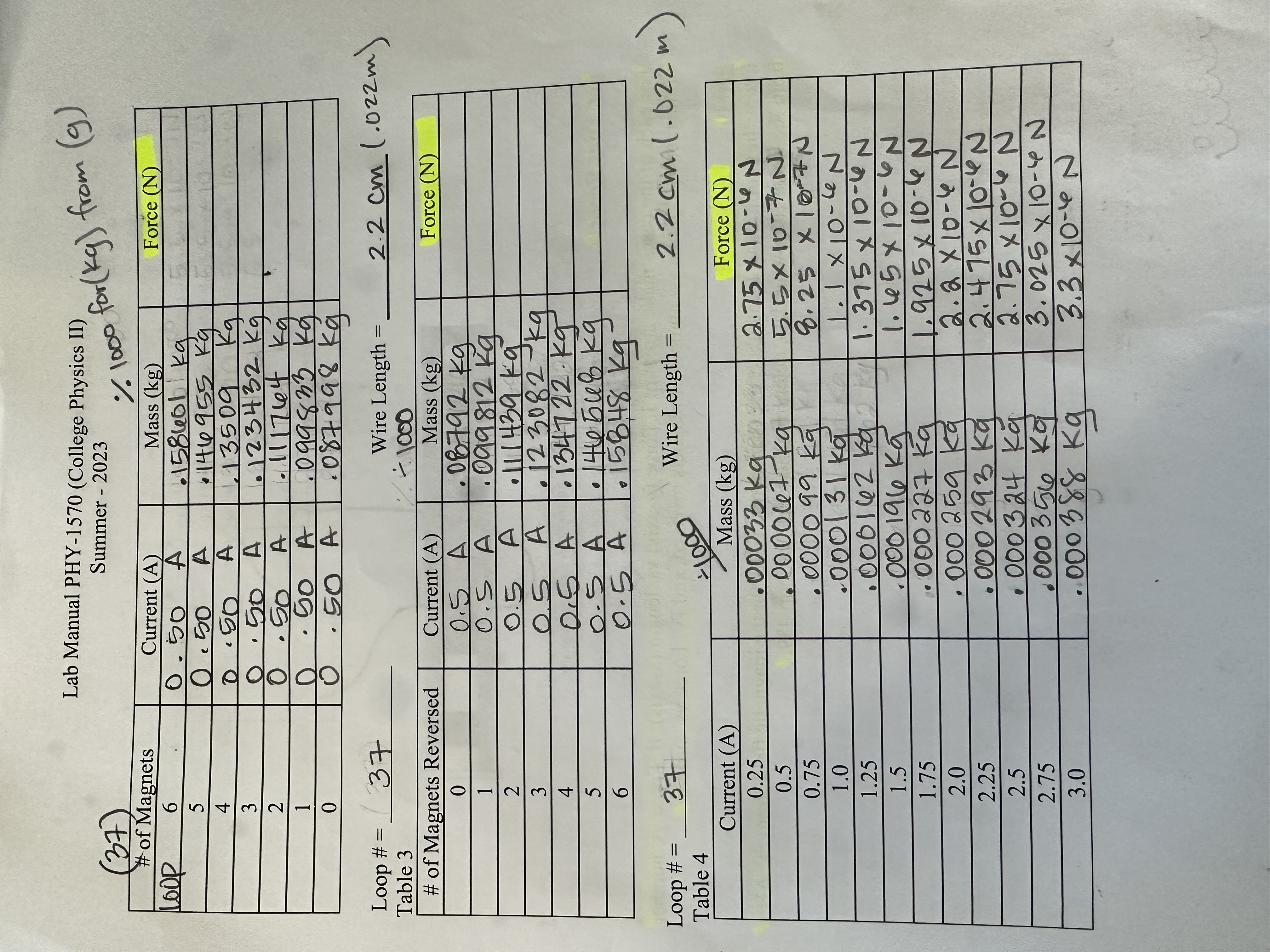
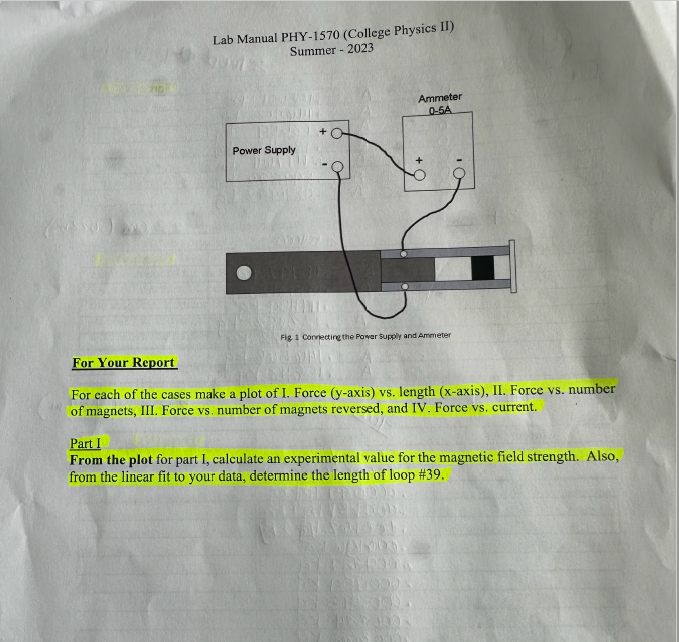
Hello,
Please read carefully, this is the second time I'm asking for help on this, I'll try to explain it clear.
On the first document its highlighted I need these graphed for me on an excel if you can attach the spreadsheet once you've completed it. So that would be 4 graphs in total. I just for some reason in excel its not working for me I don't know what I'm doing wrong.
For tables 2 and 3 the force is blank we didn't changed the loop so the force I believe for those two tables is identical, unless I'm doing something wrong can you double check it for me please. This is the second time I'm sending this up hopefully for he right solution this time. Thank you so much
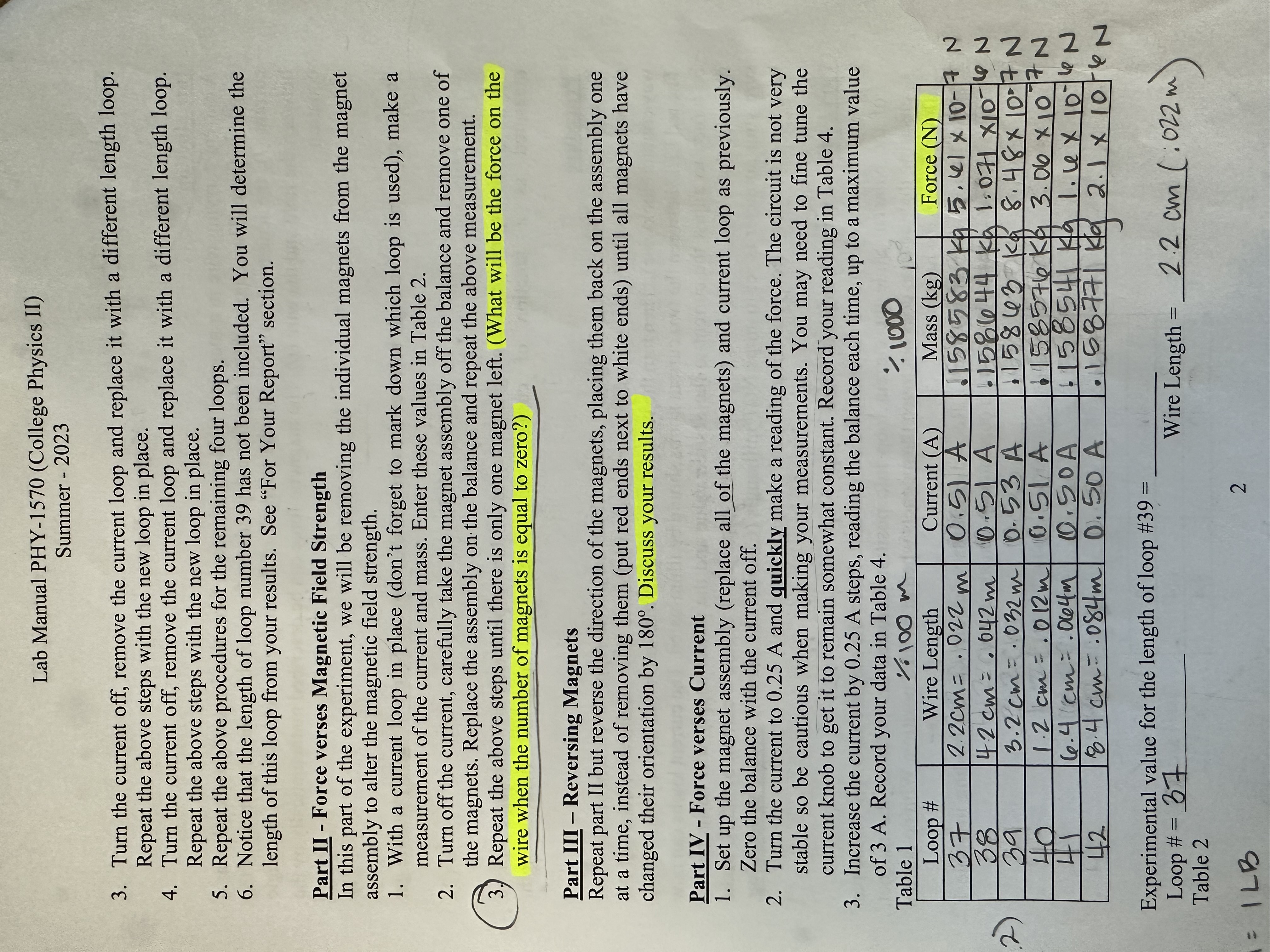
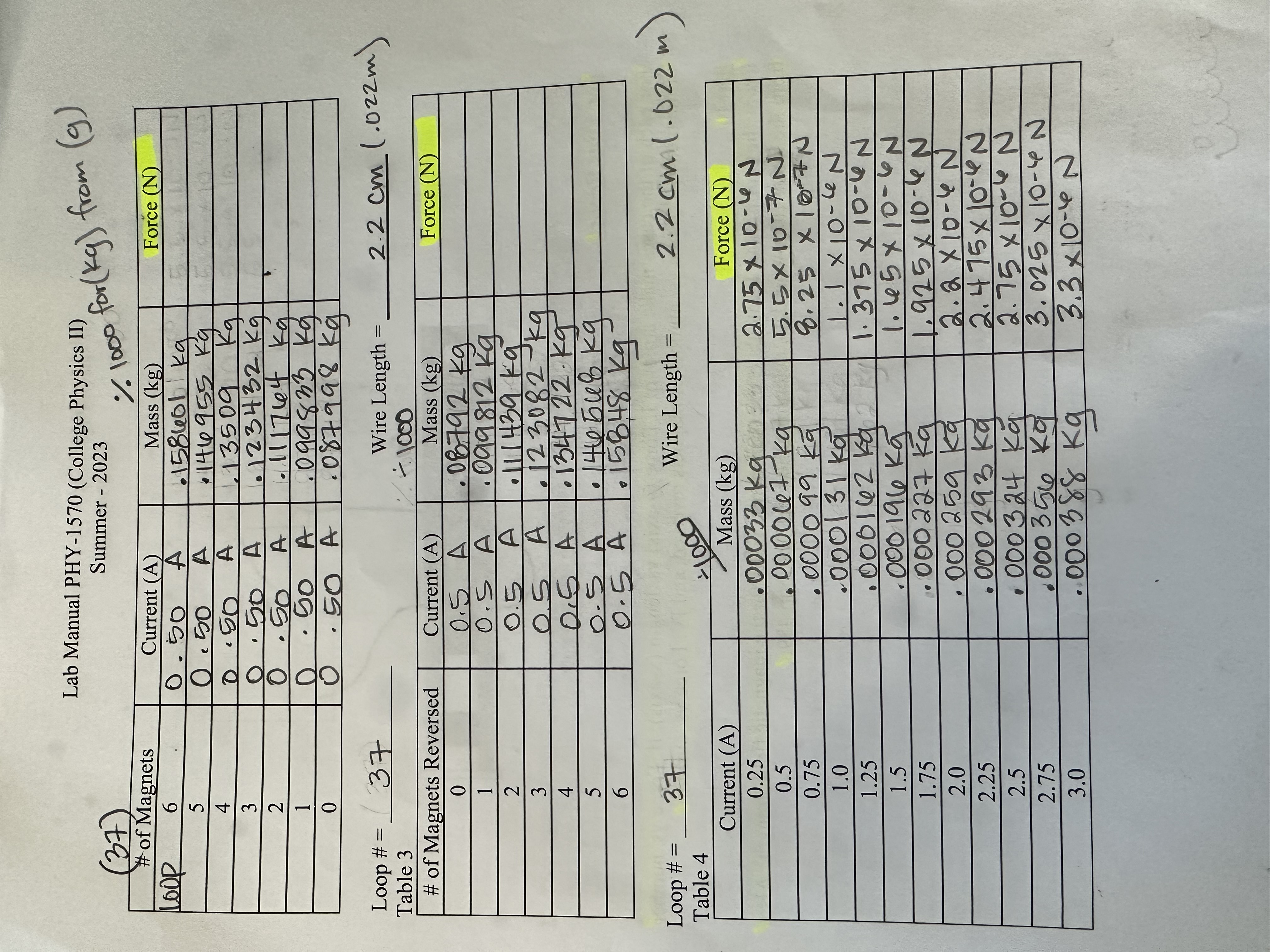
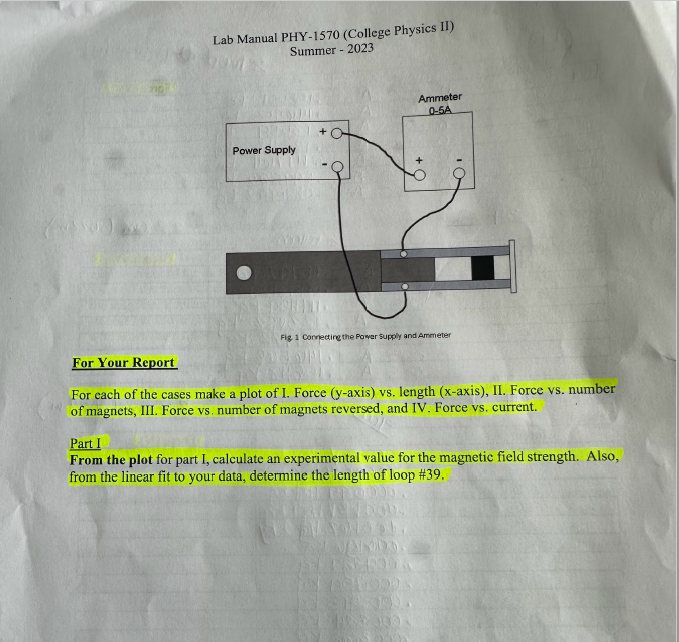
Lab Manual PHY-1570 (College Physics II) Summer - 2023 3. Turn the current off, remove the current loop and replace it with a different length loop. Repeat the above steps with the new loop in place. 4. Turn the current off, remove the current loop and replace it with a different length loop. Repeat the above steps with the new loop in place. 5. Repeat the above procedures for the remaining four loops. 6. Notice that the length of loop number 39 has not been included. You will determine the length of this loop from your results. See "For Your Report" section. Part II - Force verses Magnetic Field Strength In this part of the experiment, we will be removing the individual magnets from the magnet assembly to alter the magnetic field strength. 1. With a current loop in place (don't forget to mark down which loop is used), make a measurement of the current and mass. Enter these values in Table 2. 2. Turn off the current, carefully take the magnet assembly off the balance and remove one of the magnets. Replace the assembly on the balance and repeat the above measurement. Repeat the above steps until there is only one magnet left. (What will be the force on the wire when the number of magnets is equal to zero?) Part III - Reversing Magnets Repeat part II but reverse the direction of the magnets, placing them back on the assembly one at a time, instead of removing them (put red ends next to white ends) until all magnets have changed their orientation by 180. Discuss your results. Part IV - Force verses Current 1. Set up the magnet assembly (replace all of the magnets) and current loop as previously. Zero the balance with the current off. 2. Turn the current to 0.25 A and quickly make a reading of the force. The circuit is not very stable so be cautious when making your measurements. You may need to fine tune the current knob to get it to remain somewhat constant. Record your reading in Table 4 3. Increase the current by 0.25 A steps, reading the balance each time, up to a maximum value of 3 A. Record your data in Table 4. Table 1 1: 100 m 2 1000 Loop # Wire Length Current (A) Mass (kg) Force (N) 37 2.2cm = . 022 m 0 . 5) A 1 158 583 kh 5. 41 x 10- + N 38 42 cm = . 642 m 1586 44 KG 1: 071 X10-ON .2 ) 39 3.2 cm = . 032 m 10.53 A 1 15843 K2 8. 48x 10. 7N 40 1.2 cm = .012 m 0. 51 A 158576 Ka 3.06 x 107 N 4.4 cm : 064 m 158541 Ka 1. Lex 10-N 42 18.4 cm=: 084m/ 0. 50 A 1.168771 K9 2. 1 x 10 EN Experimental value for the length of loop #39 = Loop # = 34 Wire Length = 2 2 cm (:022 m) Table 2 ILB 2Lab Manual PHY-1570 (College Physics II) (37) Summer - 2023 1 1000 for ( kq) from ( g ) # of Magnets Current (A) LOOP Mass (kg) Force (N) 6 0 . 50 A 5 158601 kq 1 50 A 144 955 Ka 4 A 13509 Ka 3 0 .50 A 1. 123432 kq 2 0 . 50 A 1.1 1 17604 ka 1 O . 90 A .099823 kq 0 O . 50 A : 087 9 98 kq Loop # = Wire Length = 2.2 cm (.022m) Table 3 - 1000 # of Magnets Reversed Current (A) Mass (kg Force (N) 0 OS A 08792 kq 1 O. S A . 099 812 kq 2 0.5 A . 1 439 ka 3 OS A . 123082 kq 4 25 A . 1347 22. Kq 5 O. 5 A 6 0 . 5 A . 15848 Ka Loop # = 371 Wire Length = 2.2 cmi (. 022 m ) Table 4 41000 Current (A) Mass (kg) Force (N) 0.25 00033 ka 2.75 x 10-4 N 0.5 5. 5 X 10 7 N 0.75 . 0000 99 kq 8. 25 X 10 7 N 1.0 .0001 31 ka 1.I X10- 4 N 1.25 00 0 1 42 ka 1. 375 x 10- 4 N 1.5 : 000 196 Ka 1. 4 5 X 10 - 6 N 1.75 . 090 227 ka 1 925 x 10-4 N 2.0 . 000 259 kq 2. 2 X10- 4 N 2.25 . 000 293 Kq 2. 475x 10- 4 N 2.5 . 000324 ka 2.75 x 10-4 N 2.75 .000 3 54 Ko 3. 025 x 10- 4 N 3.0 . 000388 Kq 3.3 x 10-4 NLab Manual PHY-1570 (College Physics II) Summer - 2023 Ammeter 0-5A Power Supply Fig 1 Connecting the Power Supply and Ammeter For Your Report For each of the cases make a plot of I. Force (y-axis) vs. length (x-axis), II. Force vs. number of magnets, III. Force vs. number of magnets reversed, and IV. Force vs. current. Part I From the plot for part I, calculate an experimental value for the magnetic field strength. Also, from the linear fit to your data, determine the length of loop #39
Step by Step Solution
There are 3 Steps involved in it

Get step-by-step solutions from verified subject matter experts


